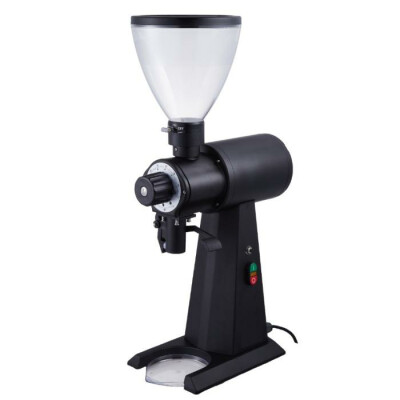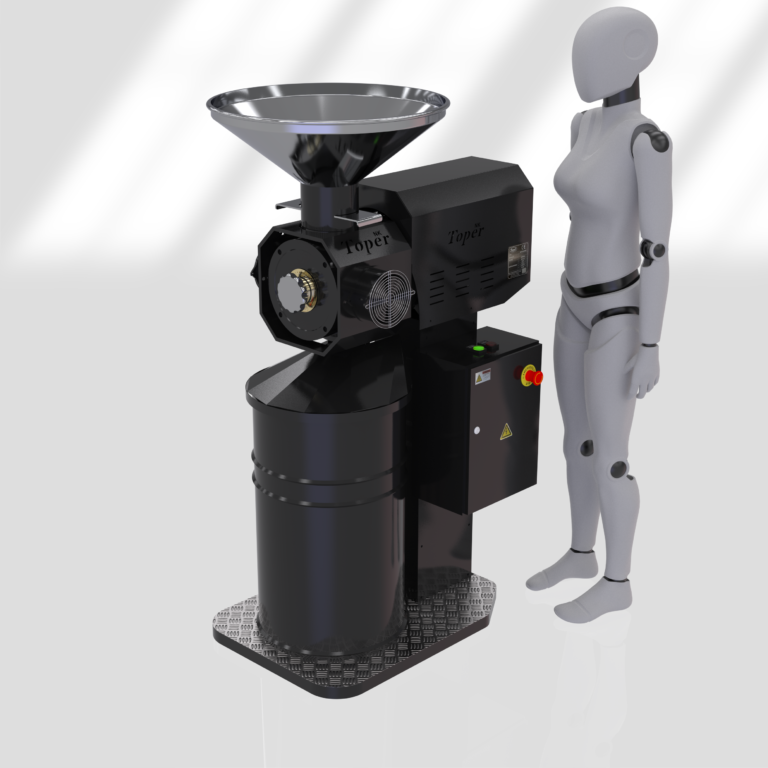Industrial Coffee Grinder: Choosing the Best Choice for Your Brewery
Industrial Coffee Grinder: Choosing the Best Choice for Your Brewery
Blog Article
How to Pick the Perfect Industrial Coffee Mill for Your Business
Picking the suitable industrial coffee grinder for your company is a diverse choice that needs careful consideration of several essential aspects. It is necessary to review your specific grinding needs, consisting of the quantity of coffee refined and the wanted grind uniformity, as these elements directly influence taste and customer fulfillment. In addition, recognizing the numerous types of mills available can considerably influence your functional effectiveness. As you browse these considerations, one should also weigh the effects of spending plan and maintenance. What various other factors could make or damage your selection?
Assess Your Grinding Requirements
When choosing a commercial coffee mill, one have to first evaluate their grinding requirements to ensure ideal performance and consistency. This initial analysis includes understanding the quantity of coffee to be processed daily, in addition to the desired grind dimension for various brewing methods. A high-capacity mill might be required for organizations offering big amounts of coffee, while smaller procedures could locate an extra portable model sufficient.
Additionally, it is vital to think about the types of coffee beans being made use of, as different beans might need particular grinding methods to accomplish the most effective taste profile. For instance, oily beans might require a mill created to handle such qualities without overheating or clumping.
Specialty coffee companies frequently demand accurate work sizes to boost removal and flavor, making it vital to choose a mill that can supply consistent outcomes. Assessing the available space and electric needs will assist in picking a mill that fits flawlessly right into your operational operations.
Understand Mill Types
Comprehending the different sorts of industrial coffee mills is important for making an informed option that fulfills particular functional demands. There are mostly two classifications of mills: blade grinders and burr mills.
Blade mills utilize spinning blades to chop the coffee beans, resulting in an irregular grind size - Industrial Coffee Grinder. While they may be much more cost effective, they are often not ideal for business applications where precision is important
On the various other hand, burr mills offer an extra uniform grind by crushing the beans between two surfaces. They can be further categorized into flat burr and cone-shaped burr mills. Flat burr grinders provide a regular work dimension and are commonly preferred for espresso preparation, while conical burr mills are flexible and can manage a variety of brew methods, from coffee to French press.
When choosing a grinder, consider the details requirements of your company, including wanted work consistency, manufacturing quantity, and the kinds of coffee drinks you intend to provide - Industrial Coffee Grinder. Each grinder kind has its constraints and advantages, so understanding these nuances allows informed decision-making that lines up with operational goals
Evaluate Work Dimension Consistency
Attaining work size uniformity is important for generating high-grade coffee, as variations in fragment size can significantly affect extraction and taste. When selecting a commercial coffee mill, it is vital to evaluate just how well the machine keeps uniformity in grind dimension across various batches. Inconsistent work sizes can lead to unequal removal, leading to a mug that may taste weak or overly bitter.
To examine grind dimension uniformity, think about mills with features such as flexible work settings and top notch burrs. Burr mills, in particular, stand out in generating consistent particle dimensions contrasted to blade mills. The material and shape of the burrs play an essential role, with stainless steel and ceramic alternatives offering durability and precision.

Consider Production Capacity
In the hectic world of coffee production, thinking about production capability is vital for services intending to fulfill need without giving up top quality. The production capacity of a commercial coffee mill straight affects a business's capability to satisfy orders effectively, manage inventory, and reply to fluctuating market fads.
When assessing manufacturing ability, it is vital to assess the grinder's output price, commonly gauged in pounds per hour. This measurement should straighten with your service's forecasted sales volume and growth targets. click this link As an example, a coffee shop with a high turnover may call for a mill that can process numerous hundred extra pounds daily, while a smaller procedure could be enough with a lower ability version.
Furthermore, consider the sort of coffee being processed. Various beans and blends may impact grinding rate and effectiveness, necessitating a mill with the ability of taking care of varied manufacturing requirements. It's also worth considering the grinder's capability to maintain constant quality under high outcome conditions, as any fluctuations can impact the end product.
Inevitably, choosing a mill that matches your company's manufacturing capacity will guarantee you remain responsive and competitive to consumer expectations.

Budget and Upkeep Elements
When evaluating the ideal commercial coffee upkeep, spending plan and grinder factors play a considerable duty in the total decision-making process,. An initial financial investment in a high-grade grinder can produce long-lasting benefits, however it's vital to establish a clear budget that aligns with your company's check my reference operational requirements. Think about both the purchase cost and prospective operational expenses, such as energy usage and replacement parts.
Maintenance is another crucial element that can impact your budget. Industrial coffee grinders require regular maintenance to make certain optimum efficiency and durability. Examine the maker's suggestions for maintenance, including cleaning timetables and components substitute, as these will certainly impact long-lasting operational costs. In addition, take into consideration the accessibility of service and support, as dependable assistance can minimize downtime and fixing costs.

Investing in a mill that check out this site is resilient yet very easy to preserve can conserve money with time. While lower-priced options might be tempting, they may incur greater maintenance prices and decreased performance. Ultimately, stabilizing initial expenses with lasting maintenance and functional performance will assist you to the most effective option for your business's coffee grinding requirements.
Verdict
Picking the ideal industrial coffee mill necessitates a comprehensive assessment of grinding requirements, grinder types, grind size consistency, production ability, and financial factors to consider. An appropriate mill not just improves the high quality of the coffee created however also contributes to the overall success and profitability of the enterprise.
Specialized coffee organizations often demand specific work dimensions to improve extraction and flavor, making it vital to pick a mill that can provide uniform results. Apartment burr mills provide a regular work dimension and are commonly preferred for espresso preparation, while conelike burr mills are versatile and can handle an array of mixture techniques, from espresso to French press.
When picking an industrial coffee grinder, it is critical to examine exactly how well the machine keeps uniformity in grind dimension across various batches. Burr mills, in specific, excel in generating uniform particle dimensions compared to blade mills.Selecting the ideal commercial coffee grinder demands an extensive evaluation of grinding demands, grinder kinds, grind size uniformity, production ability, and budgetary factors to consider.
Report this page